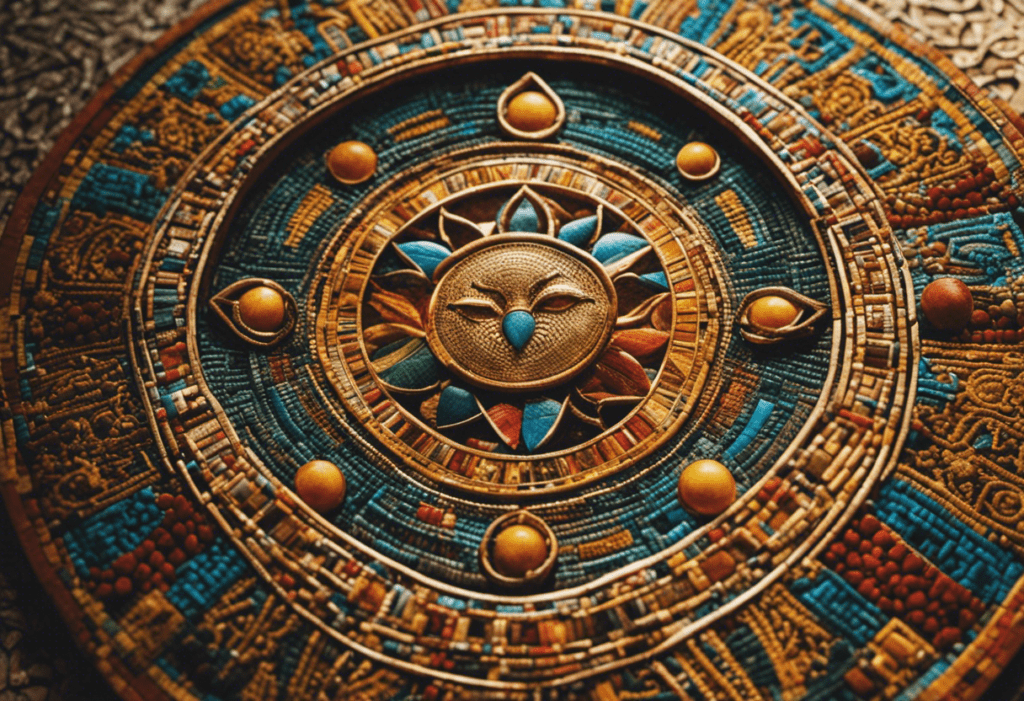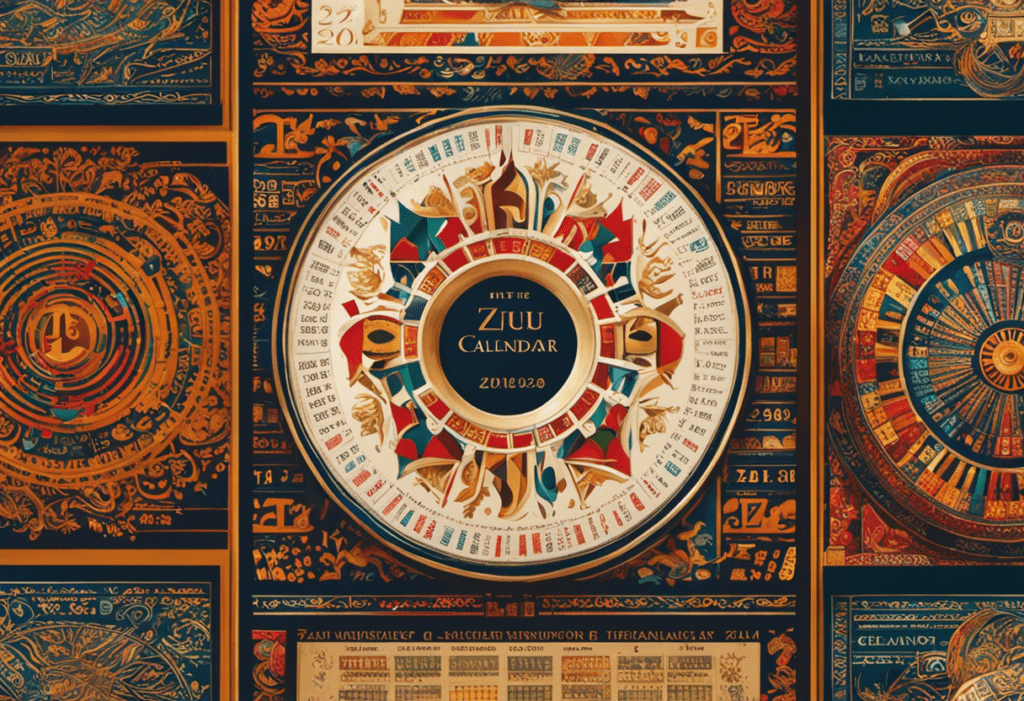In the intricate tapestry of African calendars, the Zulu calendar weaves its unique pattern, influencing and shaping the temporal fabric of other African cultures. Like a thread connecting diverse communities, this ancient calendar system has deep historical roots, cultural significance, and widespread adaptation.
Through comparative analysis, this scholarly exploration unveils the profound influence of the Zulu calendar on traditional ceremonies, festivals, and everyday life across the African continent.
In the modern era, its relevance endures, serving as a testament to the enduring legacy of the Zulu people.
Key Takeaways
- The Zulu calendar has enriched and diversified traditional timekeeping systems in other African cultures.
- It has facilitated cultural exchange and understanding among communities by influencing other African calendars.
- The Zulu calendar’s emphasis on lunar and solar cycles has influenced the incorporation of these elements in other African calendars.
- The Zulu calendar’s impact on agricultural practices and spiritual significance has inspired other African calendars to prioritize sustainable farming methods and enhance religious observances and ceremonies.
Historical Roots of the Zulu Calendar
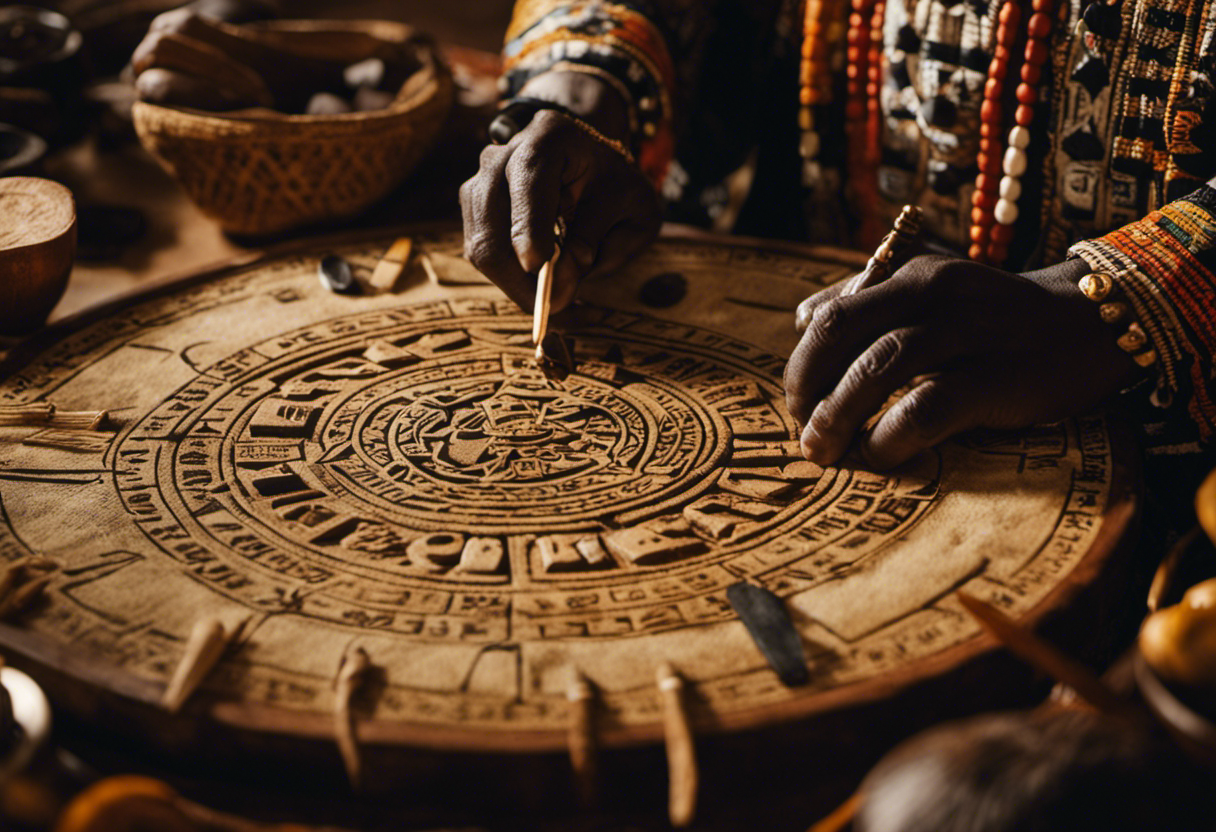

The historical roots of the Zulu calendar can be traced back to the early 19th century. The Zulu people, who are one of the largest ethnic groups in South Africa, developed their calendar system based on historical origins and celestial observations. This calendar played a significant role in their daily lives, helping them keep track of time, seasons, and important cultural events.
The Zulu calendar is primarily lunar-based, with each month beginning at the appearance of the new moon. This reliance on celestial observations allowed the Zulu people to accurately determine the passage of time and plan their agricultural activities accordingly. They observed the movements of the moon, stars, and the sun to determine the changing seasons, which influenced their planting and harvesting schedules.
The historical origins of the Zulu calendar are deeply rooted in the cultural traditions and spiritual beliefs of the Zulu people. It reflects their connection to nature and their understanding of the cyclical patterns of the celestial bodies. The calendar system also played a role in religious and ceremonial practices, as it helped determine auspicious times for important rituals and gatherings.
In comparison to other African calendars, the Zulu calendar shares similarities with other lunar-based systems found across the continent. However, each calendar has its unique variations, influenced by the specific cultural and historical contexts of the respective communities.
Cultural Significance of the Zulu Calendar


With its deep cultural roots and spiritual significance, the Zulu calendar holds immense importance in the daily lives and cultural practices of the Zulu people. The calendar is not merely a tool for tracking time but is intricately woven into the fabric of Zulu society, influencing their celebrations and rituals.
Celebrations in the Zulu culture are closely tied to the lunar and solar cycles as dictated by the calendar. The calendar helps determine the timing of important cultural events such as weddings, initiation ceremonies, and harvest festivals. Each event is carefully planned and executed according to auspicious times and dates provided by the calendar. For example, the Umkhosi woMhlanga, or Reed Dance ceremony, is an annual event that takes place in September. It celebrates the cultural significance of young Zulu women and their transition into adulthood. The Zulu calendar ensures that this celebration aligns with the most favorable lunar phase, further enhancing its spiritual and cultural significance.
Rituals also play a significant role in Zulu culture, and the calendar guides the timing and preparation of these rituals. From ancestral worship to healing ceremonies, the Zulu calendar provides the framework for honoring and connecting with their spiritual beliefs. The calendar helps determine the most propitious times to perform these rituals, ensuring that they are conducted with the utmost respect and reverence.
Adaptation and Integration of the Zulu Calendar in Other African Cultures
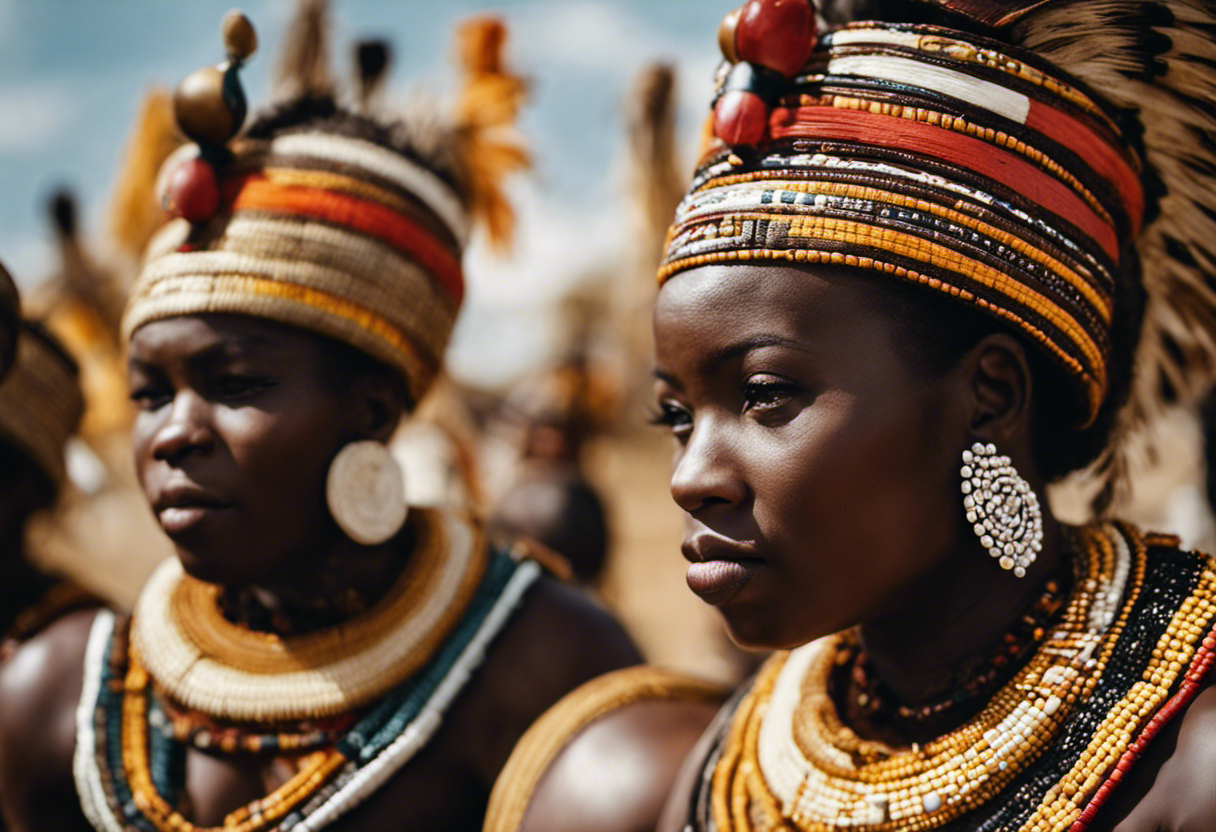

Adaptation and integration of the Zulu calendar in other African cultures have led to the enrichment and diversification of traditional timekeeping systems across the continent. The Zulu calendar, with its unique lunar and solar components, has been incorporated into various African cultures, resulting in the evolution and expansion of their own timekeeping practices.
This adaptation and integration of the Zulu calendar have had several significant effects:
-
Cultural Exchange: The incorporation of the Zulu calendar into other African cultures has facilitated the exchange of knowledge and ideas, fostering cultural diversity and understanding among different communities.
-
Enhanced Accuracy: By integrating the Zulu calendar, African cultures have been able to improve the accuracy of their timekeeping systems. The lunar and solar components of the Zulu calendar provide a more comprehensive understanding of time, allowing for more precise calculations and predictions.
-
Cultural Preservation: The adaptation of the Zulu calendar in other African cultures has played a crucial role in preserving traditional practices and beliefs. By incorporating elements of the Zulu calendar, these cultures have ensured the continuity of their ancestral wisdom and cultural heritage.
The adaptation and integration of the Zulu calendar in other African cultures have not only enriched their timekeeping systems but also fostered cultural exchange, accuracy, and preservation. This integration highlights the interconnectedness and adaptability of African cultures, showcasing the diversity and richness of traditional timekeeping practices across the continent.
Influence of the Zulu Calendar on Traditional Ceremonies and Festivals
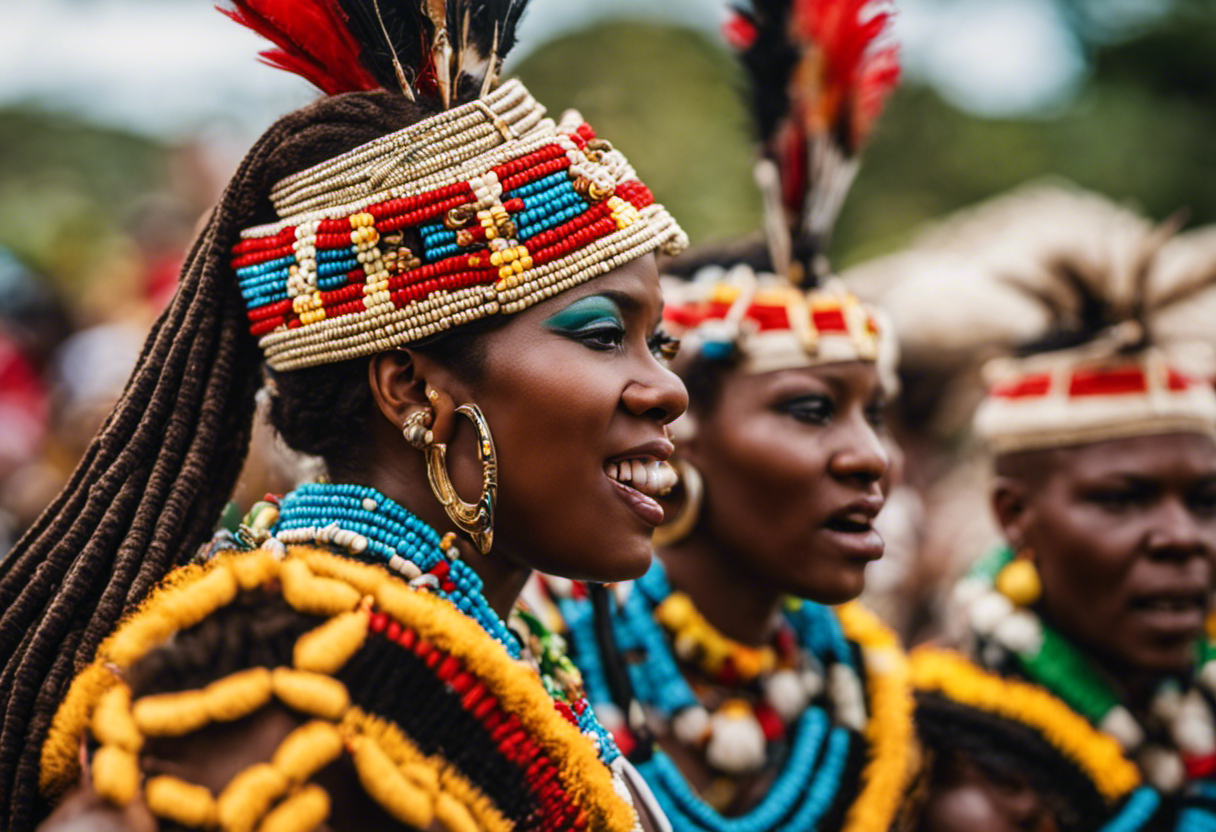

Significantly, the incorporation of the Zulu calendar has greatly influenced the traditional ceremonies and festivals of various African cultures. The Zulu calendar, with its unique lunar-based system, has had a profound impact on the timing and organization of traditional practices, rituals, and celebrations across the continent.
In many African cultures, traditional practices are deeply rooted in the cycles and rhythms of nature. The Zulu calendar, with its emphasis on the lunar phases, aligns closely with these natural cycles. As a result, many African cultures have adopted elements of the Zulu calendar to determine the timing of significant ceremonies and festivals.
One example of the influence of the Zulu calendar can be seen in the celebration of harvest festivals. In various African cultures, the timing of these festivals is often determined by the lunar calendar, which corresponds to the Zulu calendar. This allows communities to come together and celebrate the abundance of their harvest at the same time, fostering a sense of unity and shared identity.
Additionally, the Zulu calendar has also influenced the rituals and ceremonies associated with important life events such as births, marriages, and funerals. The lunar-based system provides a framework for determining auspicious dates for these occasions, ensuring that they are conducted in accordance with traditional beliefs and customs.
Modern Applications and Relevance of the Zulu Calendar in African Society
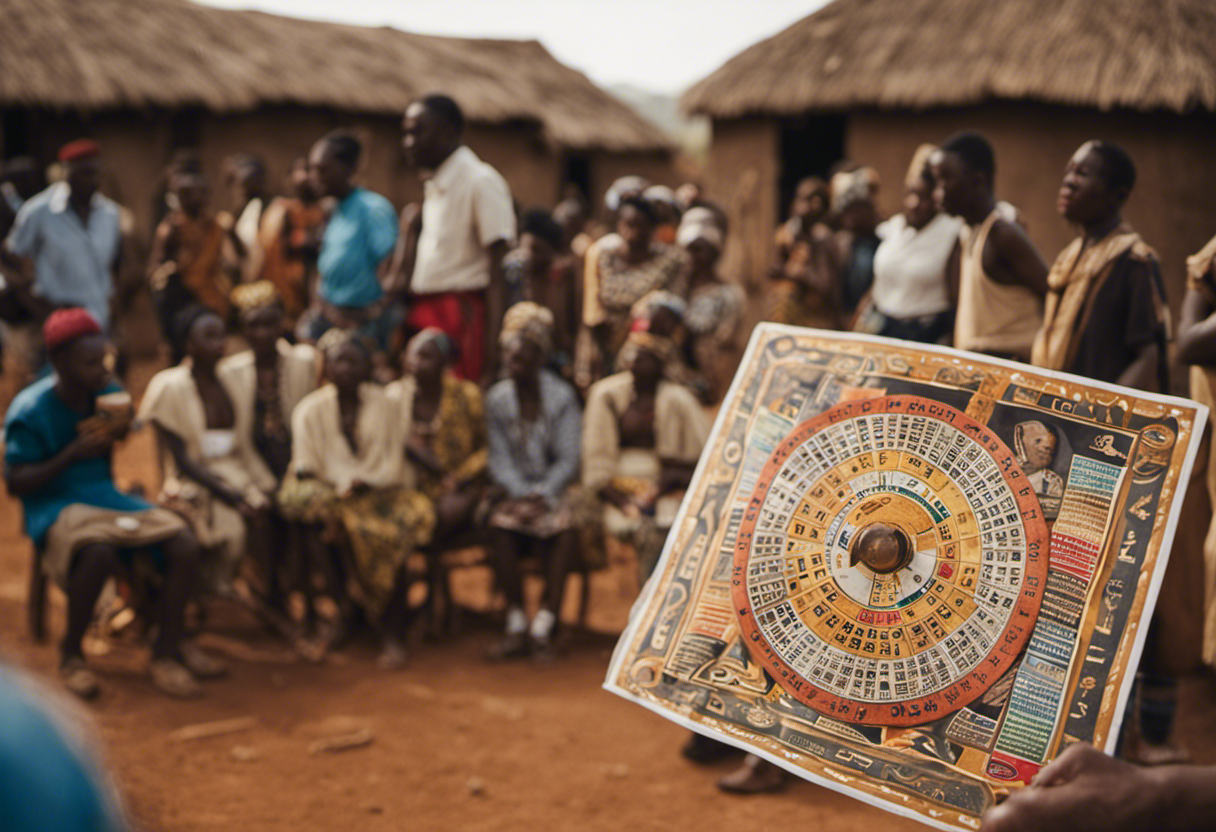

The Zulu calendar continues to hold immense importance in modern African society, as it serves as a guiding system for various cultural, social, and religious practices. Its relevance in contemporary times can be seen through its impact on daily life.
Here are some key ways in which the Zulu calendar remains significant in African society today:
-
Cultural Festivals: The Zulu calendar plays a crucial role in determining the dates for cultural festivals and events. These festivals celebrate the Zulu heritage and provide a platform for showcasing traditional dances, music, and art. The calendar ensures that these festivals are held at the appropriate times, aligning with the lunar and solar cycles.
-
Agricultural Practices: The Zulu calendar also influences agricultural practices, as it helps farmers determine the best times for planting and harvesting crops. By following the calendar’s predictions for rainfall patterns and seasonal changes, farmers can optimize their yields and ensure food security for their communities.
-
Religious Observances: The Zulu calendar guides religious observances and rituals, providing a framework for important ceremonies and gatherings. It helps determine the dates for religious festivals, such as the annual thanksgiving ceremony known as ‘Umhlanga.’ These religious practices foster a sense of community and spirituality among the Zulu people.
Conclusion
In conclusion, the Zulu calendar has had a significant influence on other African calendars, both historically and culturally. Its roots can be traced back to ancient times and it holds great cultural significance in Zulu society.
The calendar has been adapted and integrated into other African cultures, shaping traditional ceremonies and festivals. Furthermore, the Zulu calendar continues to have relevance in modern African society, serving as a means to preserve cultural heritage and facilitate social cohesion.
As the saying goes, ‘The Zulu calendar is a tapestry that weaves together the diverse threads of African culture.’

